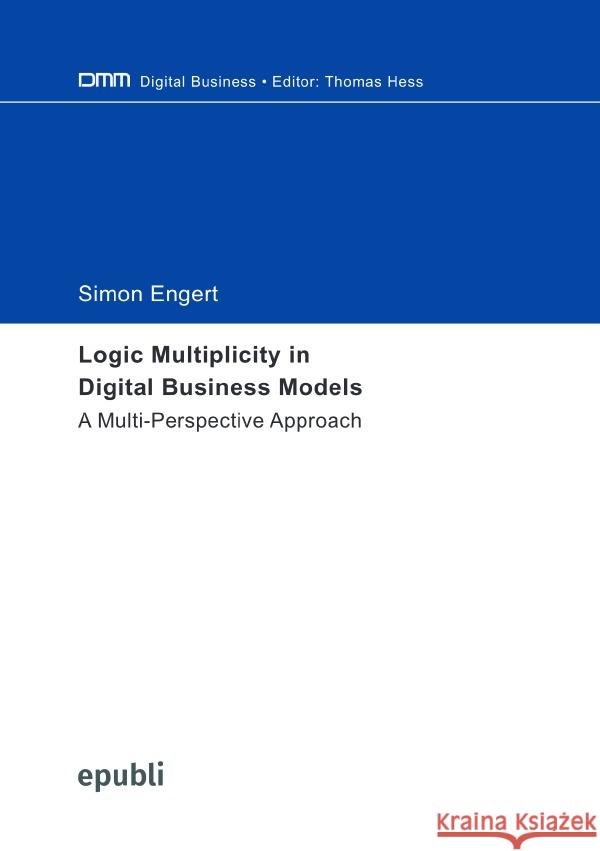Wyniki wyszukiwania:
wyszukanych pozycji: 3
 |
Logic Multiplicity in Digital Business Models
ISBN: 9783759845146 / Angielski / Miękka / 212 str. Termin realizacji zamówienia: ok. 10-14 dni roboczych. Digital technologies permeate and shape almost all aspects of business and society. Building on these digital technologies, firms develop digital business models to drive their digital transformations and leverage the opportunities the digital era promises. Digital business models are increasingly complex, heterogeneous, and inherently sociotechnical phenomena. They connect various actors and blur the boundaries of markets, industries, and institutional contexts. Research has long established that institutional logics shape actors' actions and sensemaking. However, information system research...
Digital technologies permeate and shape almost all aspects of business and society. Building on these digital technologies, firms develop digital busi...
|
cena:
89,42 |
 |
Anleitung zur Einkommensteuererklärung 2023
ISBN: 9783791060323 / Niemiecki / Miękka / 2023 / 761 str. Termin realizacji zamówienia: ok. 10-14 dni roboczych. In dieser Anleitung finden Sie neben fachlich fundierten, zuverlässigen Erläuterungen zu den Vordrucken auch viele nützliche Hinweise für die Einkommensteuererklärung 2023. Dabei halten sich die Ausführungen genau an den Aufbau der amtlichen Vordrucke, so dass sie den einzelnen Fragen in den Formularen problemlos zugeordnet werden können. Die vielen Hinweise auf legale Steuerersparnismöglichkeiten helfen Ihnen, die gesetzlich vorgesehenen Abzugsmöglichkeiten voll auszuschöpfen. Darüber hinaus enthält die Anleitung Tipps zur... In dieser Anleitung finden Sie neben fachlich fundierten, zuverlässigen Erläuterungen zu den Vordrucken auch viele nützliche Hinweise für die E... |
cena:
335,43 |
 |
Anleitung zur Einkommensteuererklärung 2025
ISBN: 9783791067599 / Niemiecki / Miękka / 2025 / 764 str. Termin realizacji zamówienia: ok. 10-14 dni roboczych. In dieser Anleitung finden Sie neben fachlich fundierten, zuverlässigen Erläuterungen zu den Vordrucken auch viele nützliche Hinweise für die Einkommensteuererklärung 2025. Dabei halten sich die Ausführungen genau an den Aufbau der amtlichen Vordrucke, so dass sie den einzelnen Fragen in den Formularen problemlos zugeordnet werden können. Die vielen Hinweise auf legale Steuerersparnismöglichkeiten helfen Ihnen, die gesetzlich vorgesehenen Abzugsmöglichkeiten voll auszuschöpfen. Darüber hinaus enthält die Anleitung Tipps zur elektronischen Abgabe der Steuererklärung... In dieser Anleitung finden Sie neben fachlich fundierten, zuverlässigen Erläuterungen zu den Vordrucken auch viele nützliche Hinweise für die E... |
cena:
402,53 |










